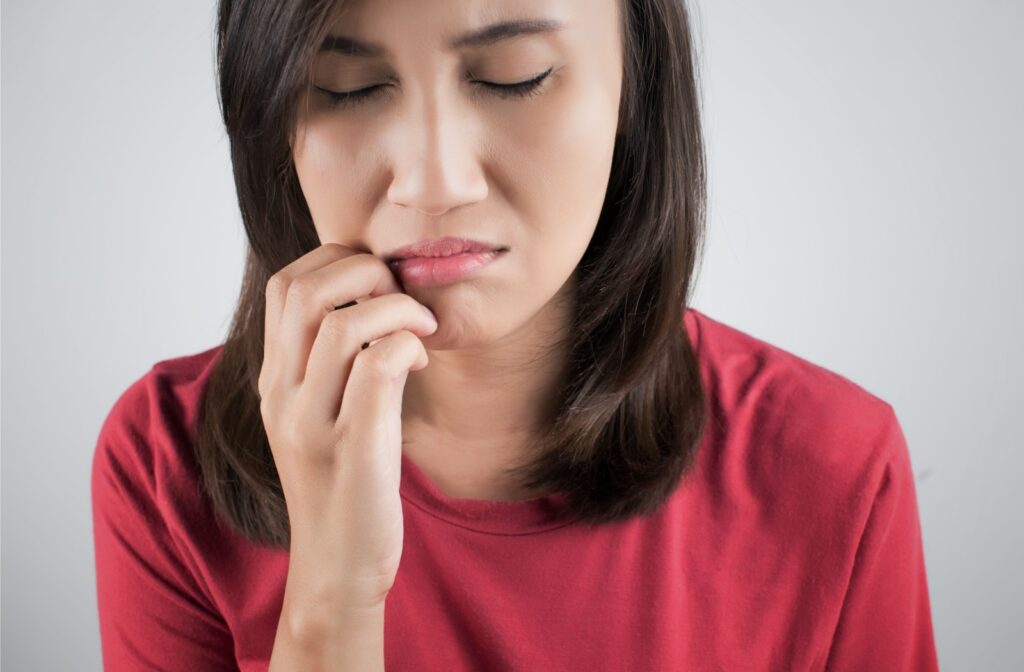Few things are more bothersome than having itchy and irritated gums. It can be a strange sensation, but it usually occurs because your gums are trying to tell you something important. Itchy gums could be due to allergies, gum disease, ill-fitting orthodontics, and more.
Fortunately, your dentist can help you out. They offer a range of services to help keep your mouth healthy and your smile bright. From regular dental exams and cleanings to more advanced treatments for gum disease, they can scratch that itch with personalized care.
Ill-Fitting Dental Devices Can Cause Irritated Gums
Ill-fitting dental devices are a bit like wearing the wrong shoe; they can scratch and irritate, causing inflammation. When this happens, your gums could become itchy, swollen, and they may bleed. This irritation may also lead to the growth of bacteria and fungi in the mouth, which can worsen itchy gums.
Some of the most common dental devices that can cause itchy gums include retainers, dentures, mouthguards, and braces. Retainers that are too tight or have been worn too long can rub against the gums. The same can be said for dentures or mouthguards that are too big or too small.
While braces can do wonders for straightening your teeth, the brackets and wires can be irritating, especially when you first get them. The soft tissue in your mouth isn’t used to foreign objects, so they may react with a bit of an itch or sensitivity.
But don’t worry, this sensation is perfectly normal and there are ways to manage it. Maintaining good oral hygiene can help reduce this irritation.
Using Dental Wax for Comfort
Additionally, using dental wax can provide some relief. Putting a bit of wax on the brackets can help make your gums more comfortable and subdue the itching sensation.
Plaque Buildup
Plaque is a sticky film of bacteria that builds up on your teeth over time. Without practicing regular oral hygiene habits like brushing and flossing, plaque buildup can lead to gum inflammation and itching. To prevent plaque buildup, make sure to brush twice a day, floss daily, and visit your dentist regularly for professional teeth cleaning. If left alone, plaque could progress into a more serious condition.
Gingivitis
Gingivitis is an early form of gum disease caused by plaque buildup on your teeth hardening into tartar. Gingivitis can cause tiny pockets to form along your gums, causing puffiness, bleeding, and itchiness.
Over time, this infection can break down your gum tissue, which can cause your teeth to become loose and risk falling out. In this early stage of gum disease, it’s still possible to reverse the damage with the help of your dentist.
Gum Injuries
When you’ve injured your gums, your body naturally goes into healing mode. Part of this process involves inflammation, which is your body’s way of protecting the injured area and sending in healing cells to repair the damage. This inflammation can cause sensations like itchiness. It’s a bit like when you get a scratch on your skin and it starts to heal—it can get pretty itchy.
While some itchiness is normal, it shouldn’t last too long. To ease the discomfort, you can try rinsing your mouth with a lukewarm saltwater solution. If you notice that your gums are still feeling itchy a few days after an injury, or if the itchiness is getting worse instead of better, it’s time to reach out to your dentist.
Allergic Reactions
When you have an allergic reaction, your body’s immune system goes into overdrive. It’s trying to protect you from what it sees as a threat—even if that “threat” is just something harmless like pollen or a certain type of food.
One of the ways your body fights back is by releasing a chemical called histamine. Histamine causes inflammation, which in even mild cases can lead to symptoms like itching. And your gums aren’t immune to this. They can become inflamed and itchy, just like your skin or eyes might during an allergic reaction.
To identify the allergen, you may need to undergo allergy testing. Avoiding the allergen and taking antihistamines may help relieve the symptoms.
Hormonal Changes
Our hormones play a big role in how our body functions—and that includes our gums. When there are changes in your hormone levels, like during pregnancy or menopause, blood flow to your gums may increase. This can make your gums more sensitive, and therefore more prone to itchiness.
If you experience itchy gums and think it might be due to hormonal changes, don’t hesitate to reach out to your dentist. We’ll work with you to determine the cause and create a plan to soothe your itchy gums.
Dry Mouth
When your mouth is dry, it means you’re not producing enough saliva. This could be due to disease, smoking, or other moisture-affecting factors, like certain medications. Saliva is more than just spit—it’s actually your mouth’s natural cleaning system. It washes away food particles and helps maintain a healthy pH level in your mouth.
When you don’t have enough of it, you can experience itch. Your dentist can examine your symptoms and offer solutions, which may include changing medication, drinking more water, or chewing sugar-free gum.

Relief for Itchy Gums in Calgary
Itchy gums can be caused by several factors, ranging from minor issues like gum injuries to more severe ones like periodontitis. But whatever the reason, our team at Shawnessy Dental can help you find relief.
If your itchy gums won’t go away, give us a call for a proper diagnosis and personalized treatment plan.


